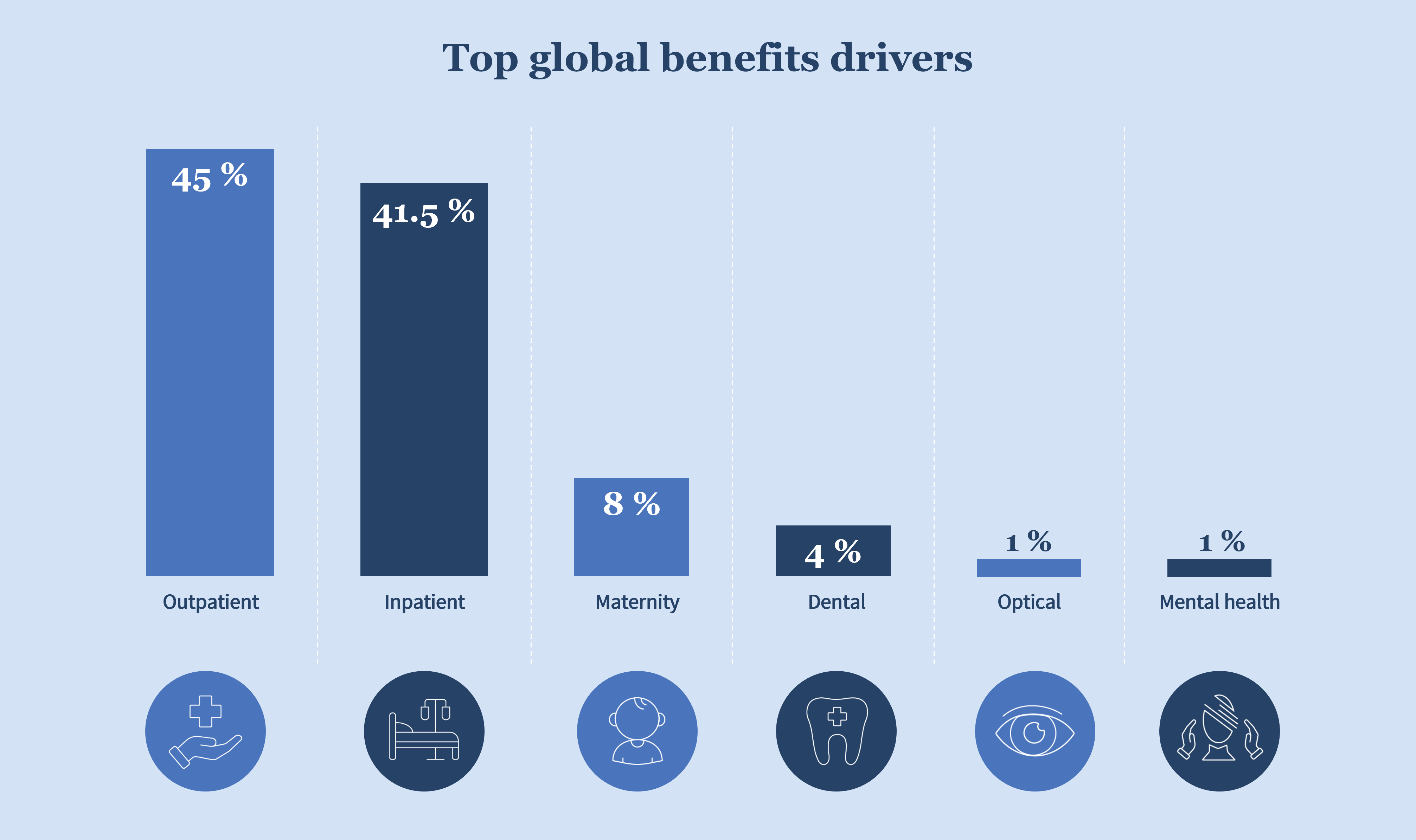Let’s open up about mental health
Mental wellness is more than ever a trending issue in France, as well as internationally. Around the world, geopolitical tensions and health crises are sources of psychological distress. But a country’s culture can make a real difference in how well mental health is cared for. Mélina Foo, Director of Marketing and Communications at MAXIS, shares her international vision of this issue that deeply affects individuals.

Mélina, what are your views on the mental health of employees of multinationals?
Let me start by saying that my views are informed by MAXIS’s experience with over 250 multinational groups that it insures. The MAXIS network of insurers provides employee benefits solutions for large companies and their employees around the world. We are the market leaders and operate in more than 120 countries. Our network of about 140 partner insurers means that we are aware of local changes and can identify general trends in each region. I’ll come back to this later.
Let’s look at the health of employees of multinationals. In every part of the world, health insurance is one of the most important benefits for employees, and 36% state that it is the benefit that they value the most. (1) Health insurance is therefore considered to be a key component of social protection.
In 2020, many countries saw an increase in mental health expenses, measured as a percentage of total health care reimbursements. For example, mental health care reimbursements in Chile rose 22% compared to the previous year and, in the United Kingdom, they shot up 49% from 2019. Despite these individual increases, overall, mental health occupies a very minor place compared to other health care expenses.(2)

Can you give us some examples for different regions?
Yes, of course. In Europe, mental health accounts for over 3% of reimbursements, compared to barely 0.3% in Latin America and 0.8% in the Middle East and North Africa. There are significant differences among regions, even though this type of care is still too infrequent. (3)
So, what do you see as the major barrier preventing people from getting mental health care?
Before the pandemic, mental health services were under-represented because of the stigma associated with mental illness in many countries, where it is widely considered a taboo subject. The pandemic accentuated the need for people to have access to psychological support no matter where they are. It is highly probable that the effects of the COVID-19 pandemic – namely, social isolation, loss of employment, bereavement and widespread restrictions – have been detrimental to peoples’ mental health.
As we gradually reduce the taboo on mental illness and change our behaviors, there seems to be less stigmatization of patients seeking treatment for their mental health troubles.
“For the first time, we have seen mental health-related reimbursements in Taiwan and Thailand.”
We hope that the pandemic will have contributed to opening up the conversation on mental illness and the importance of seeking help, especially since additional sources of distress, such as geopolitical tensions and fast-growing eco-anxiety, are being added to the equation.
What trends have you observed?
The COVID-19 pandemic highlighted mental health as a social issue. The good news is that in many regions, such as Europe, public health organizations have run large-scale awareness campaigns to stop the stigma related to mental illness. For example, in France, Santé Publique France ran campaigns targeting the 18-24 age group, for whom the psychological impact of the pandemic was the greatest. In the UK, the NHS ran a social media campaign using the lyrics of the Beatles song Help! to raise awareness of the importance of mental health care. Are these campaigns and open conversations on mental health the reason why the share of mental health care reimbursements has risen in Europe?

I would also like to cite Dr. Tomkins and Dr. Harwood from AXA Health, who in a recently published white paper pinpointed a paradox in our society: “We are encouraged to service our cars to keep them running, as children we were told to brush our teeth to avoid tooth decay and as adults many of us keep an eye on our diet while keeping physically active. Yet, we are often given the message that feelings of stress and anxiety are a sign of weakness, that we should ignore our worries and be productive, despite our concerns.”
So I believe that awareness needs to be raised at a young age, to instill the right attitudes. In some countries, such as Canada, mental health issues are raised much more freely. Seeing a therapist is not perceived so negatively! But these issues shouldn’t be addressed only at the individual level.
“Companies also have a role in putting a stop to taboos and providing employees with innovative services.”
For example, in Hong Kong, with the support of the AXA Research Fund, a trial was conducted using virtual reality technology. The participants were patients suffering from social avoidance, social anxiety, depression and fear of negative evaluation. The self-administered program included five different VR scenarios to choose from: a convenience store, a cafe, a bus, a street and a medical clinic. A virtual coach guided participants through a series of tasks, such as ordering in a café or establishing eye contact, with increasing levels of difficulty, enabling them to gradually reduce their anxiety. So, there are new options for the future!
These are positive signals. It is up to all of us to continue in this direction, so that everyone can have the chance to lead a happy, fulfilling life.
(1) MAXIS GBN survey conducted in October 2021, covering 1,205 employees in the United Kingdom, the United States, the United Arab Emirates, France, Spain, South Africa, Mexico and Indonesia, spread equally among the various regions. This survey was conducted online by an independent third party.
(2) From MAXIS 2022 whitepaper “THE GLOBAL PRIVATE HEALTHCARE LANDSCAPE A STORY TOLD BY MAXIS CLAIMS DATA”
(3) Various, American Medical Student Association https://www.amsa.org/mental-health-in-latin-america/ (sourced December 2021)

Focus on
View Point
Mental health at a time of crisis – what can you do to support your people?

News
A Report on Mental Health & Wellbeing in Europe
Covid-19 is the worst public health crisis for more than a century; it’s also an economic crisis.





